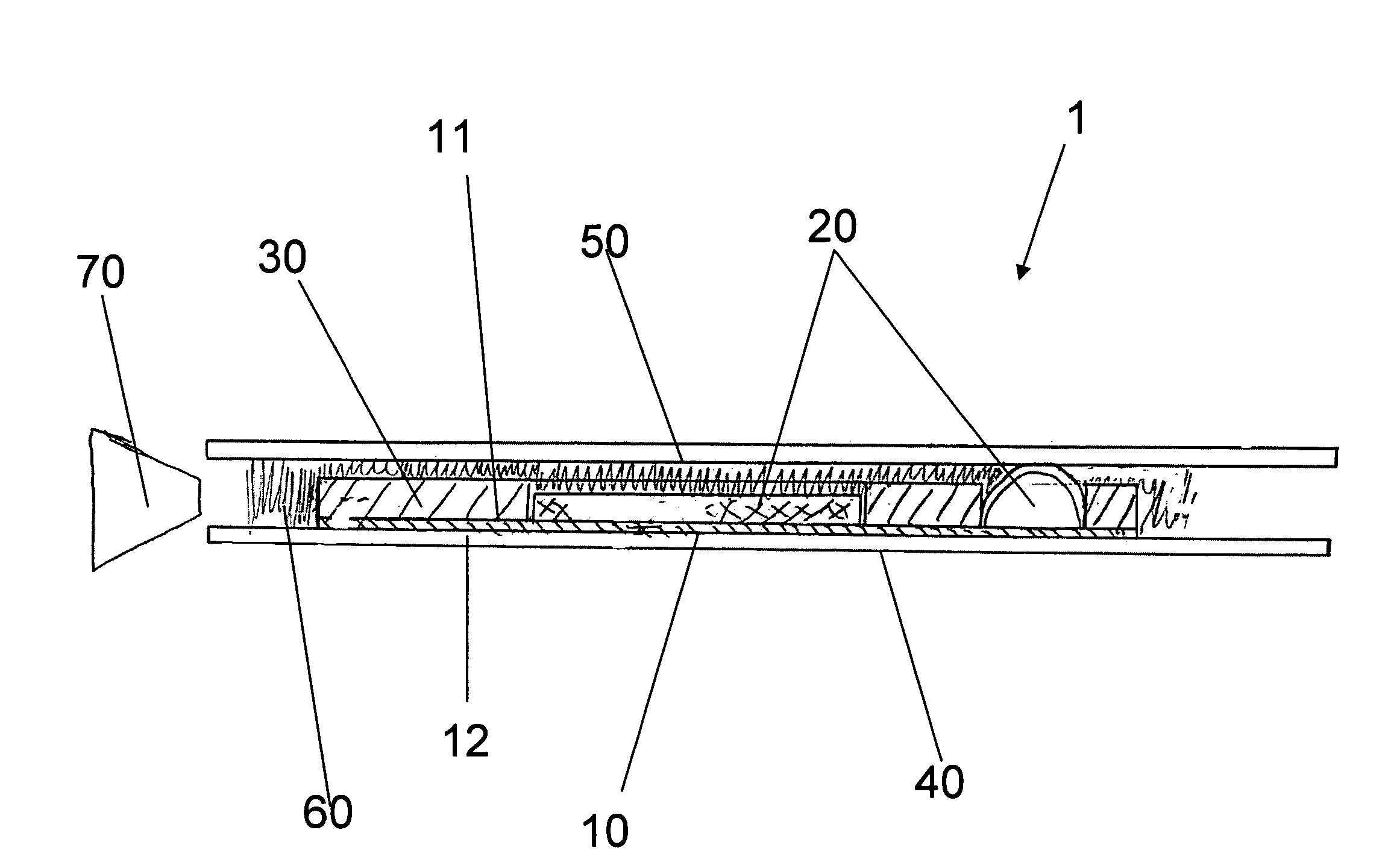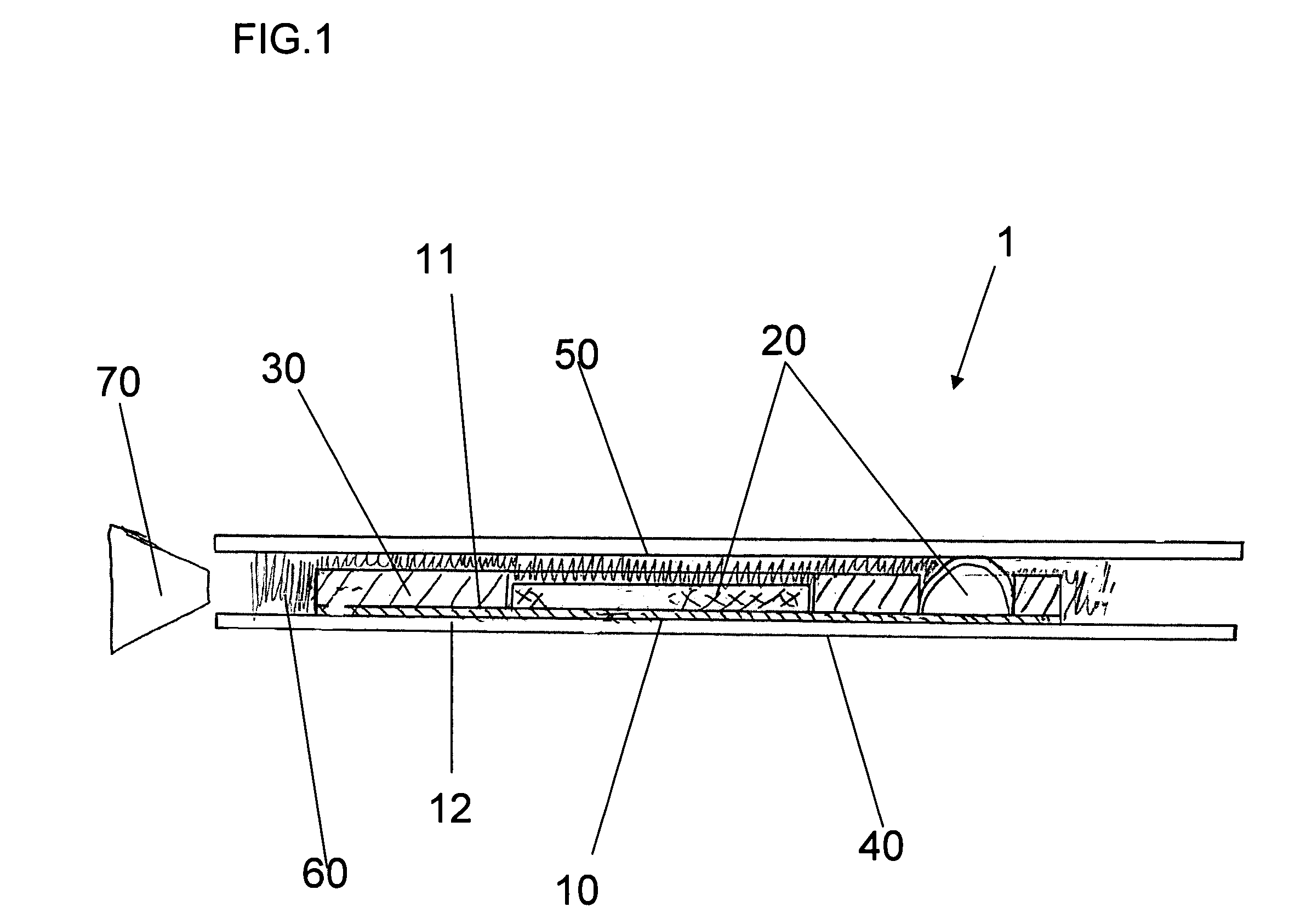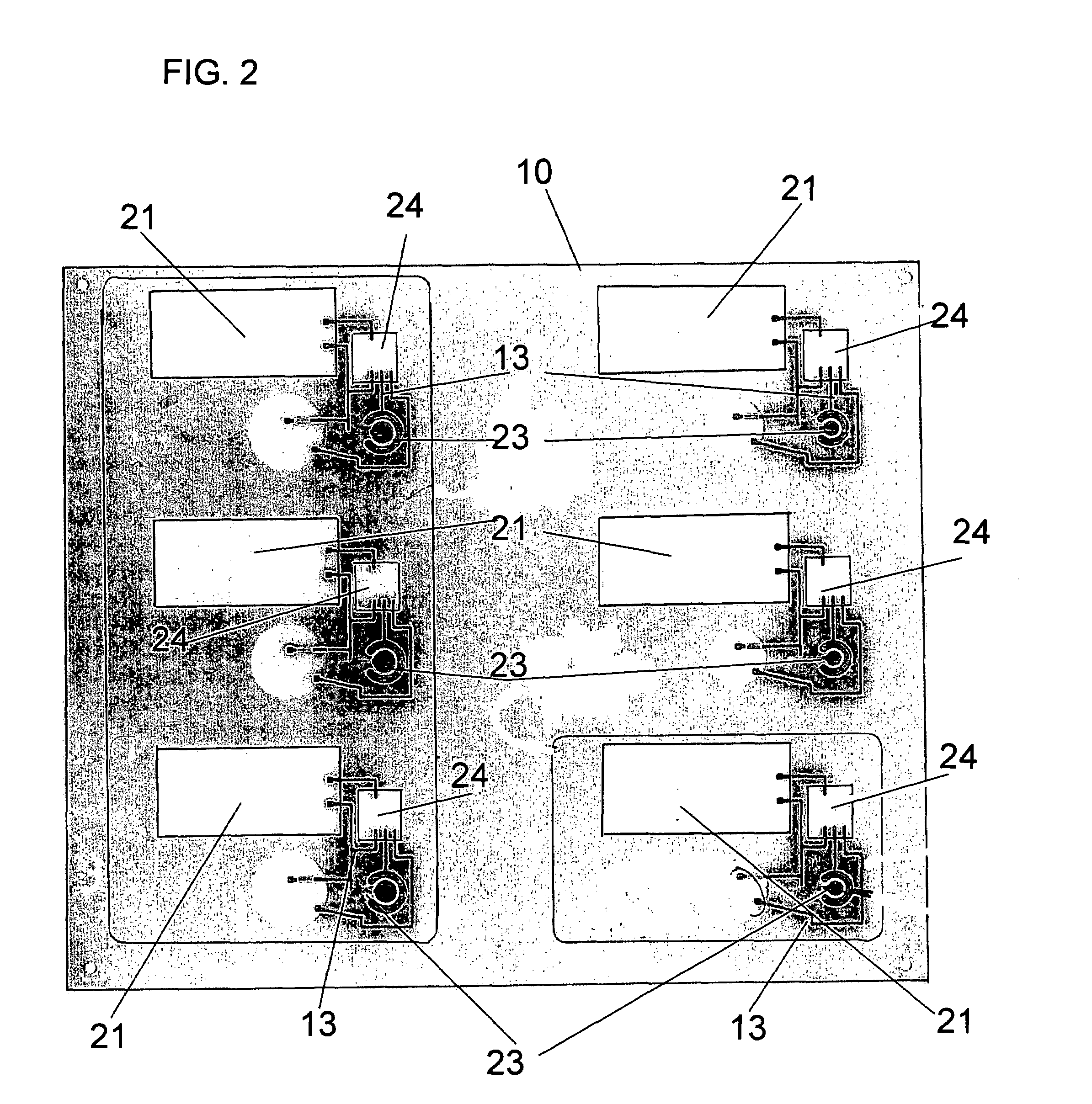Smart card and method for manufacturing a smart card
a smart card and manufacturing method technology, applied in the field of smart cards and manufacturing methods, can solve the problems of reducing the size and number of electronic components of the holding device, affecting the body of the relatively large holding device, and causing deformations
- Summary
- Abstract
- Description
- Claims
- Application Information
AI Technical Summary
Benefits of technology
Problems solved by technology
Method used
Image
Examples
Embodiment Construction
[0027]Embodiments of the present invention will be described below with reference to the accompanying drawings. It should be understood that the following description is intended to describe exemplary embodiments of the invention, and not to limit the invention.
[0028]According to one embodiment of the present invention, as shown in FIG. 1, the smart card 1 comprises a printed circuit board 10, a plurality of circuit components 20, a filler board 30, a bottom overlay 40, a top overlay 50 and a core layer 60.
[0029]The printed circuit board has a top surface 11 and a bottom surface 12. The printed circuit board is comprised of any known conventional material suitable for receiving an electronic circuit. For example, the printed circuit board may be comprised of a flame retardant laminate with a woven glass reinforced epoxy resin. This material is also known as FR-4 board. Alternatively, the printed circuit board may be comprised of a plastic compound that is suitable for receiving cond...
PUM
| Property | Measurement | Unit |
|---|---|---|
| thickness | aaaaa | aaaaa |
| thickness | aaaaa | aaaaa |
| thickness | aaaaa | aaaaa |
Abstract
Description
Claims
Application Information
 Login to View More
Login to View More - R&D
- Intellectual Property
- Life Sciences
- Materials
- Tech Scout
- Unparalleled Data Quality
- Higher Quality Content
- 60% Fewer Hallucinations
Browse by: Latest US Patents, China's latest patents, Technical Efficacy Thesaurus, Application Domain, Technology Topic, Popular Technical Reports.
© 2025 PatSnap. All rights reserved.Legal|Privacy policy|Modern Slavery Act Transparency Statement|Sitemap|About US| Contact US: help@patsnap.com



